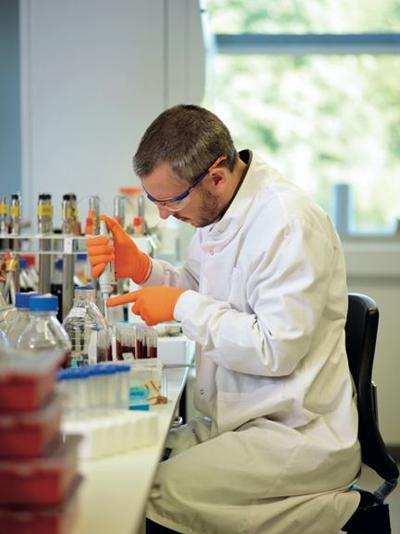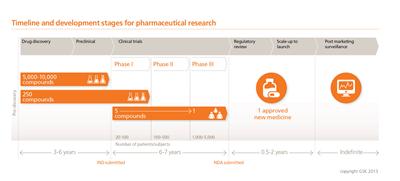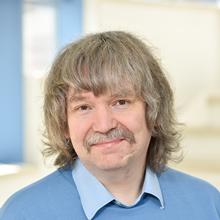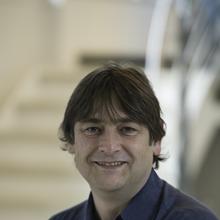Strong links between research chemists in academia and industry bring results

Scientists at international pharmaceutical company GlaxoSmithKline (GSK) believe their links with chemists at the University of Southampton are helping them develop the next generation of medicines.
Following many years of collaborations in various projects and initiatives, GSK is now a major player in the Dial-a-Molecule Grand Challenge Network, led by Professors Richard Whitby and David Harrowven from Southampton and Professor Steve Marsden from the University of Leeds.
Dial-a-Molecule began in 2010; it brought together more than 450 scientists, engineers and mathematicians from academia and industry and attracted funding of half a million pounds from the Engineering and Physical Sciences Research Council (EPSRC). The Dial-a-Molecule aspiration is to devise improved methods of creating the complex molecules needed in 21st century pharmaceuticals, agro-chemicals, energy and manufacturing, in addition to speeding up the manufacturing processes and reducing waste.
For Dr Robin Attrill, who works in Product Development at GSK's Stevenage laboratories, Dial-a-Molecule helps him keep in touch with developments. "To begin with, it was an opportunity to network, and to gain different perspectives on aspects of our work, but now we are seeing some tangible outputs from collaborations, and additional grants from EPSRC, to advance the science."
He believes initiatives such as Dial-a-Molecule have encouraged academic and industrial chemists to come together to work on joint interdisciplinary projects in a way that would have been challenging five years ago. "This is not just about blue skies thinking, it is an innovative way of considering specific scientific issues with a target in mind and it benefits everyone." GSK, which employs 12,500 staff in research and development worldwide, has hosted several Dial-a-Molecule meetings at its research centre in Stevenage.

Drug discovery is a lengthy and expensive business. It can take up to ten years for a promising molecule to go through the developmental process and become an accepted treatment for patients. "Close collaboration between academic and industry chemists can only help us to produce the next generation of significant medicines quickly and safely," says Robin.
Thumbnail Image and infographic: Copyright GSK 2013
Related Staff Member
Related Staff Member
Links to external websites
- Professor Steve Marsden
- GlaxoSmithKline (GSK)
- Dial-a-Molecule
- Engineering and Physical Sciences Research Council (EPSRC)
The University cannot accept responsibility for external websites.

